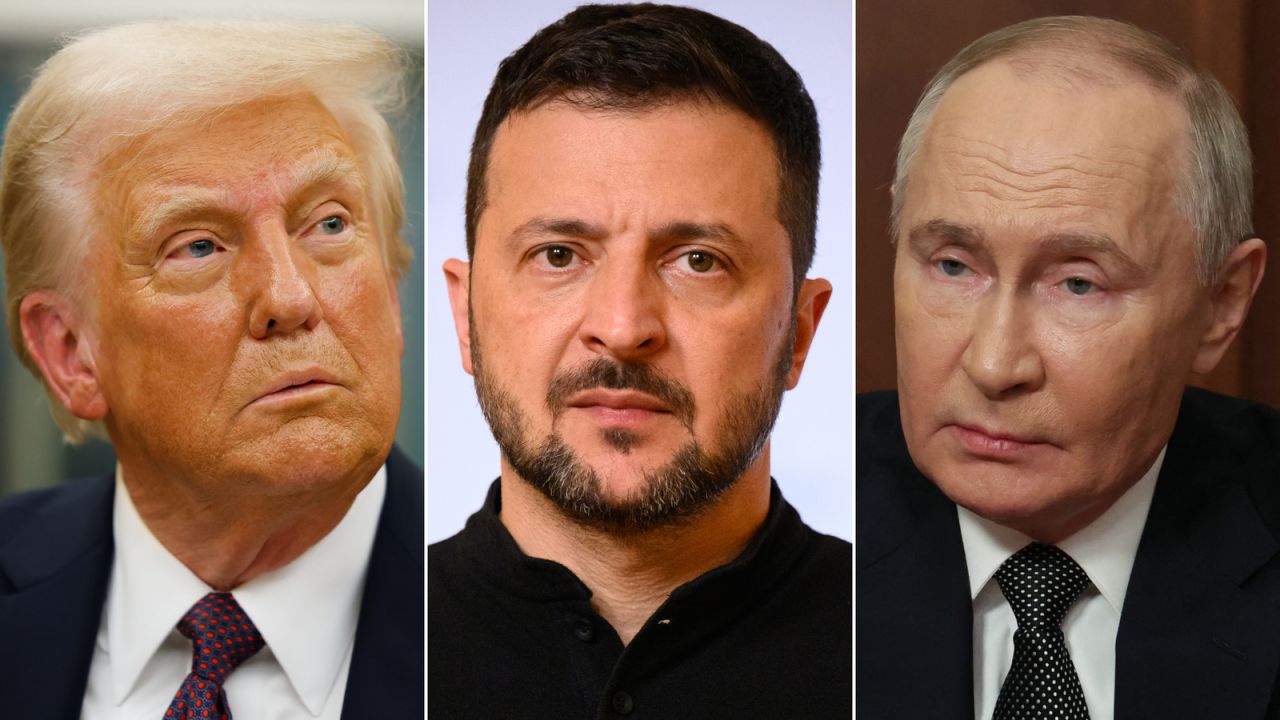
Ukraine Stands Firm on Territorial Integrity Amid Ongoing Peace Efforts
President Volodymyr Zelensky has made it clear that Ukraine will not surrender any of its land to Russia in exchange for peace, following reports of an upcoming summit between Russian President Vladimir Putin and former U.S. President Donald Trump. The meeting, scheduled to take place in Alaska, aims to address the ongoing conflict that has lasted over three years. However, both Ukraine and European nations have expressed concerns about Kyiv’s exclusion from the negotiations.
In a statement, Trump suggested that “there’ll be some swapping of territories to the betterment of both sides,” though no specifics were provided. Zelensky responded swiftly, emphasizing that Ukrainians would not give up their land to the occupying force. He warned that decisions made without Ukraine’s involvement would only hinder peace efforts and fail to bring an end to the war.
Zelensky also engaged in discussions with British Prime Minister Keir Starmer, urging allies to take decisive steps toward achieving a sustainable peace. National security advisors from key allies, including the United States, European Union members, and the United Kingdom, met in Britain to align their strategies ahead of the Putin-Trump summit.
French President Emmanuel Macron reiterated that the future of Ukraine must involve its people, while also stressing the importance of European participation in any negotiations. This sentiment was echoed by other global leaders, who emphasized that the path to peace must include all relevant stakeholders.
A ‘Dignified Peace’ Remains Elusive
Despite multiple rounds of talks this year, progress has been minimal, and the positions of both sides remain far apart. The war has resulted in tens of thousands of deaths and displaced millions, with no sign of an immediate ceasefire. Putin has consistently resisted calls for a pause in hostilities, and he has ruled out direct talks with Zelensky at this stage.
Ukraine has long advocated for a three-way summit involving the U.S., Russia, and Ukraine, believing that direct engagement with Putin is essential for meaningful dialogue. However, the current situation suggests that such a meeting may not lead to significant breakthroughs.
Location and Implications of the Summit
The choice of Alaska as the location for the summit has sparked debate. Known for its remote and northern geography, the region was once part of Russia before being sold to the U.S. in 1867. Zelensky criticized the venue, calling it “very far away from this war, which is raging on our land, against our people.” The Kremlin, however, described the selection as logical, citing the area's proximity to the border between the two countries and its economic significance.
Moscow has also invited Trump to visit Russia later in the year, continuing the diplomatic outreach. The last time Trump and Putin met was during a G20 summit in Japan in 2019. Since then, they have had several phone conversations, with Trump attempting to mediate peace in Ukraine without success.
Global Diplomacy and Regional Tensions
Ahead of the Alaska summit, Putin held calls with several world leaders, including Brazil, China, and India. Brazilian President Luiz Inacio Lula da Silva reaffirmed his support for dialogue and peaceful solutions. Meanwhile, the U.S. has imposed additional tariffs on India for purchasing Russian oil, aiming to pressure Moscow into negotiations. Similar measures were considered for China, but no action has been taken so far.
Continuing Hostilities and Civilian Impact
Despite ongoing diplomatic efforts, fighting continues along the front lines. Drones and attacks are exchanged between Ukrainian and Russian forces, with civilian casualties reported. In Kherson, a bus carrying civilians was hit, resulting in two deaths and 16 injuries. Russian forces claimed to have captured Yablonovka, a village in the Donetsk region, which remains one of the most contested areas in the east.
Ukrainian authorities reported four deaths in Donetsk due to shelling. Russia annexed four regions in 2022—Donetsk, Lugansk, Zaporizhzhia, and Kherson—but does not have full control over them. Crimea was annexed in 2014. For any peace settlement, Moscow has demanded that Ukraine withdraw its forces from these regions and commit to neutrality, avoiding Western military alliances and NATO membership.
Ukraine has rejected Russian claims to its territory, stating that any return of occupied lands must be achieved through diplomacy, not warfare. As the conflict persists, the international community continues to seek a resolution that respects Ukraine’s sovereignty and territorial integrity.
